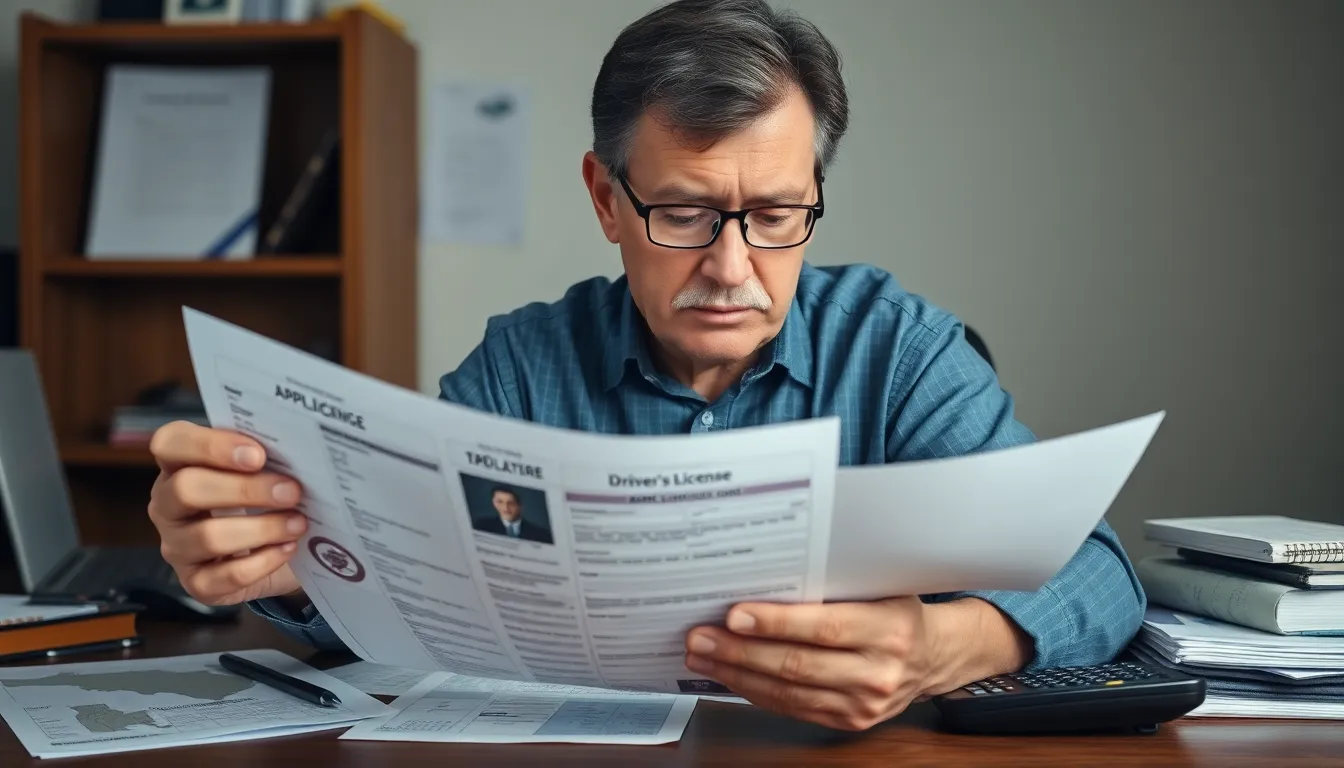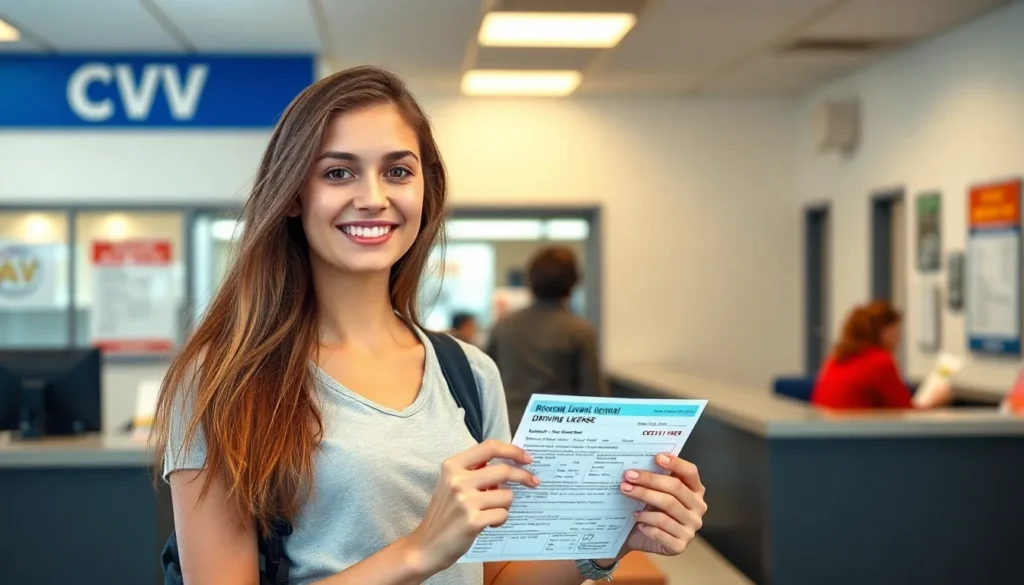Table of Contents
ToggleRenewing a driver’s license is a task many people face, yet the costs associated with it can vary significantly. Understanding these fees is crucial for anyone planning to keep their driving privileges intact. From state-specific charges to potential additional costs, knowing what to expect can save time and money.
In this article, readers will discover the average costs for renewing a driver’s license across different states, along with factors that may influence these fees. Whether it’s a standard renewal or an upgrade to a Real ID, being informed ensures that drivers can navigate the process smoothly and avoid unexpected expenses.
Overview Of Driver’s License Renewal
Renewing a driver’s license involves specific fees that vary by state and individual circumstances. Most states charge between $20 and $60 for standard renewals, with some exceptions based on age or driving records.
Factors influencing renewal costs include:
- State regulations: Renewal fees differ according to state laws and guidelines.
- License type: Standard licenses and enhanced licenses often have varying fees, with enhanced options typically costing more.
- Age: Some states offer reduced rates for seniors or have different charges for younger drivers.
- Real ID upgrades: Upgrading to a Real ID incurs additional costs, often ranging from $10 to $30, depending on the state.
Many states provide online renewal options. Online services can sometimes lead to reduced fees or expedited processing. In-person renewals often require additional paperwork, especially for those upgrading their licenses.
Understanding the specific requirements and costs associated with renewing a driver’s license helps individuals prepare financially and ensure they maintain their driving privileges without delay. Checking local DMV websites offers the latest information relevant to each state’s renewal process.
Factors Influencing Renewal Costs


Several aspects influence the costs for renewing a driver’s license, including age-related factors, state-specific regulations, and the type of license held.
Age and State Variations
Age impacts renewal fees significantly, with many states offering discounts for seniors aged 65 and older. Renewal costs for young drivers, particularly those under 21, may also vary. State variations contribute to the different renewal fees, with some states charging as little as $10 for seniors while others may impose higher rates. Checking local regulations ensures that individuals understand the applicable fees based on their age and state residency.
Type of License
The type of driver’s license held affects renewal costs. Standard licenses generally incur lower fees than enhanced or commercial licenses. Enhanced licenses, which provide additional identification benefits for travel, often cost $10 to $30 more. Individuals needing specific licenses, like motorcycle permits, might encounter different rates. Choosing the appropriate license type can influence the overall expense when renewing the driver’s license.
Typical Renewal Fees
Renewal fees for driver’s licenses vary significantly across states. Understanding the typical costs associated with standard and commercial licenses helps individuals prepare for renewal.
Standard License Renewal
Standard license renewal fees generally range from $20 to $60. Most states enforce fees based on a person’s age and driving history. Younger drivers under 21 may encounter lower fees, while seniors, often 65 and older, might receive discounts, occasionally as low as $10. Some states levy additional charges for specific requests, such as adding endorsements or upgrading to a Real ID, which typically costs between $10 and $30. Online renewal options frequently provide fee discounts or quicker processing compared to in-person renewals, which can require more documentation.
Commercial License Renewal
Commercial license renewal fees tend to be higher, typically ranging from $30 to $90, due to additional requirements for commercial driving. Fees vary based on the type of commercial license held, such as Class A or Class B, and may increase if endorsements are necessary, like hazardous materials or passenger transport. Some states charge fees specific to testing requirements, which may include skills and knowledge assessments. Individuals should verify the exact fee structure on their respective DMV websites, as fees can vary substantially depending on state regulations and personal circumstances.
Additional Costs To Consider
Understanding additional costs associated with renewing a driver’s license is essential for effective budgeting. Several fees may arise beyond the standard renewal charges.
Late Renewal Penalties
Late renewal penalties vary by state and can add substantial costs. Typically, penalties range from $10 to $50 depending on how long the license has been expired. Some states impose stricter penalties, increasing the fine for each month of delay. Renewing after the grace period often requires a written explanation or an application for a restricted license, which can incur further fees.
Other Fees
Other fees may be applicable during the renewal process. For instance, duplicate licenses typically cost between $5 and $20. Conversion to a Real ID may incur a fee ranging from $10 to $30 in addition to the standard renewal cost. Fees for testing, such as vision or knowledge tests, can also apply, especially if a renewal involves a change in license class or if the expiration exceeds a certain period. Depending on the state, processing fees for online renewals can add $2 to $5 to the overall cost.








